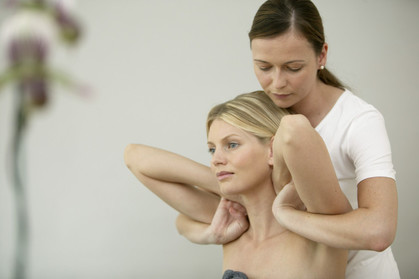MS Therapy
How Durham MS program and exercise program came about
In September 2008, Gordon Ellis approached Cynthia Atkin (Funding and Partnership Manager) Multiple Sclerosis MS Research and Relief, with an idea to try out a community-based pilot scheme related to MS patients within Durham and the surrounding area.
His idea was to demonstrate how a holistic multidisciplinary community-based program could benefit people with this condition.
The project went ahead with the help and support of Diana Charlton who worked alongside Cynthia Atkin and a member of the board of trustees Ken Hampton. We were quickly supported by Dave Allen from the Primary Care Trust and Barbara Wingrove (MS nurse) from city hospital Sunderland.
A briefing Information Day was organised at Abbey Leisure Centre, Durham on Saturday 8th November 2008.
9.30 Welcome and introductions from MS Research and Relief Fund.
Cynthia to welcome everyone to the day and thanks to MS Society, the MS Specialist Nurses, Abbey Leisure Centre and Gordon Ellis for their valuable support with this event. (Introduce our Trustees if available). To go through the programme for the day and explain the questionnaire required for completion (this will be encouraged for completion at lunchtime)
11.0 What is Multiple Sclerosis? (Barbara Wingrove, MS Specialist Nurse, Sunderland).
10.30 Do you have access to an MS Specialist Nurse in your area? (Janette Curlis, MS Specialist Nurse, RVI Newcastle).
12.0 Staying active with Multiple Sclerosis (Gordon Ellis, Physiotherapist)
11.30 Questions and Discussion
11.45 lunch
12.00 Cynthia to introduce Gordon Ellis, Physiotherapist (a little background). Gordon will present on the importance of staying active, what we can do whilst living with this condition. Exercise, physiotherapy playing a major role. Plans to provide this at Abbey Leisure and work with MSRRF.
1.15 Complementary Therapy Taster Sessions, running alongside taster sessions on a gentle exercise programme and keeping active. (MSRRF Therapists and Gordon Ellis)
2.15 Discussion session
2.30 What now? Developing therapy services in Durham (Cynthia Atkin)
4.0 Thanks and Departure
Many Thanks to the following Partners for supporting this event for people living with Multiple Sclerosis in the Durham Area.
MS Society - Durham Branch and Region (part-funding the day)
Abbey Leisure Centre
The MS Specialist Nurses,– Barbara Wingrove and Janette Curlis (For giving up their valuable time).
Gordon Ellis (For giving up his valuable time)
Gordon said, in February 2016. "I am so pleased that the program I started back in 2009 has not only proven to be highly popular with the class sizes growing and other venues being added. I'm more pleased that people with MS have benefitted from the project and continue to do so. I would like to thank all of the staff who have participated and supported along the way as well as the MS patients who have supported the scheme, for without their continuing efforts it would not be where it is today. I'm also very proud to say that my son Jason Ellis a Chartered Stated Registered Physiotherapist took over my role with the project and continues to do so to this today in the centres that are running"
Multiple Sclerosis Information and benefits of the sessions
Definition: Multiple Sclerosis (MS) is a progressive disease of the nervous system. Over 2,500,000 people in the world have MS. It is the most common disease of the Central Nervous system in young adults with women being affected more than men with a ratio of 3:2. Studies also suggest 2 to 5% of all people with MS have a history of symptom onset before age 18 with most symptoms similar to those seen in adults, however children may also experience other symptoms. There are 4 types of MS: Benign, Relapsing-Remitting, Secondary Progressive, Primary Progressive.
Pathology: This is an autoimmune condition, possibly a common virus may be the trigger MS. The word Sclerosis means scars. In MS the protective myelin sheath of the nerve fibre is damaged, inflammation and ultimate loss of the myelin causes disruption to the nerve transmission.
Symptoms: Early MS may present as a history of vague symptoms. Visual disturbance, blurring and double vision (diplopia) may be present. Symptoms can progress to loss of balance and coordination, tremors, weakness and unstable walking. Spasticity may occur with altered muscle tone, muscle stiffness and spasm. The body may also experience altered sensation with tingling, paraesthesia, burning sensations and muscle pains. The person suffering from MS can also present with bladder and bowel problems, with the most common of symptoms being fatigue which is both debilitating and unpredictable.
Treatment: There are no drugs that can cure MS. Immunomodulators and immunosuppressants may help to reduce the number and severity of MS relapses by either modifying or temporarily shutting down the immune system to alter the course of MS. Physiotherapy, Pilates, Massage and some Complimentary Therapies can be of help to relieve spasticity.
Rehabilitation: Overall disability and mobility may be improved through moderate aerobic exercise. Muscle weakness may be improved with progressive controlled resistance exercise. Balance and motor control can be addressed with proprioception (balance and co-ordination) protocols. Passive exercise can help to increase joint range of movement and muscle elasticity to reduce spasticity. Relaxation classes along with patient focused individual and group classes can help to promote wellbeing. Assisted aqua therapy in (Cool) water can also be very therapeutic. Research has highlighted that fatigue is reduced by a more active life






